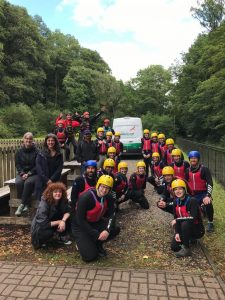Author: crina.radu
Met Office: DataScience@work Seminar
Compass Internship Talks
LV Datathon for Compass and IAI CDT
Compass students attending APTS Week in Durham
Between 4th and 8th of April 2022 Compass CDT students are attending APTS Week 2 in Durham.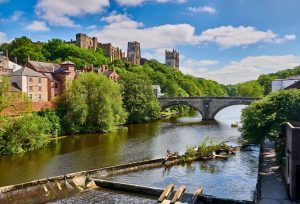
Academy for PhD Training in Statistics (APTS) organises, through a collaboration between major UK statistics research groups, four residential weeks of training each year for first-year PhD students in statistics and applied probability nationally. Compass students attend all four APTS courses hosted by prestigious UK Universities.
For their APTS Week in Durham Compass students will be attending the following modules:
- Applied Stochastic Processes (Nicholas Georgiou and Matt Roberts): This module will introduce students to two important notions in stochastic processes — reversibility and martingales — identifying the basic ideas, outlining the main results and giving a flavour of some of the important ways in which these notions are used in statistics.
- Statistical Modelling (Helen Ogden): The aim of this module is to introduce important aspects of statistical modelling, including model selection, various extensions to generalised linear models, and non-linear models.
Compass Guest Lecture: Dr Kamélia Daudel, Postdoctoral researcher Department of Statistics, University of Oxford
Virtual event: Funded PhDs in Data Science, AI & Digital Health
New Opportunity: Funded PhD Project on Developing methods for model selection in causal health analyses
How can statistical modelling tell us what causes disease? Electronic Health Records (EHR) have transformed medical research, with diverse examples including examining risks of emergency admissions on weekends vs weekdays, and health and psychological outcomes after COVID-19. The strengths of analyses based on EHR data include the very large number of individuals available for analysis and the extremely detailed data available for each individual.
Access to Data Science: start your PhD journey with Compass
Want to find out what a modern PhD in Statistics and Data Science is like?
Access to Data Science provides an immersive experience for prospective PhD students. This fully-funded, two-day event will be hosted by Compass academics and PhD students in the Fry Building, home to the School of Mathematics at the University of Bristol.
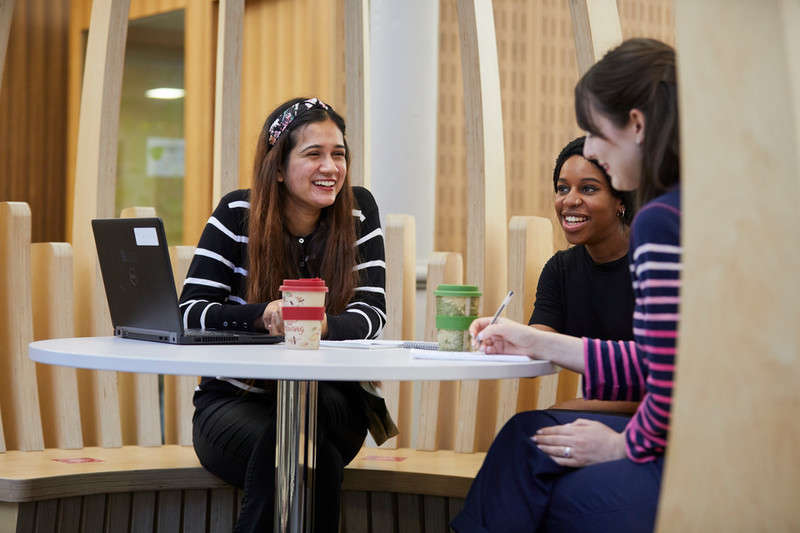
Application deadline: Monday 18 October 2021
Event dates: Monday 8 November – Tuesday 9 November
Find out more about the event here
The purpose of this event is to increase all aspects of diversity amongst data science researchers. We particularly encourage applications from women and members of the LGBTQ+ and BAME communities to join us.

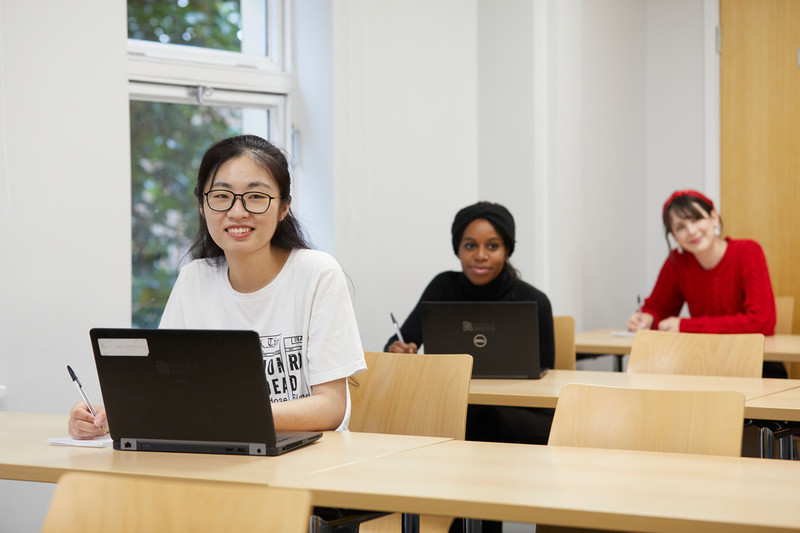
What to expect from the Access to Data Science event:
- attend seminars and guest lectures
- take part in a hands-on workshop
- have exclusive access to an application writing workshop
- work with the current Compass PhD students
- option to attend the Women and non-binary people in mathematics event.
Who can attend
We welcome participants from a range of numerate academic backgrounds, with undergraduate degrees in subjects such as computer science, economics, epidemiology, mathematics, statistics and physics.
We welcome applications from across the UK. Access to Data Science participants will be offered hotel accommodation, reimbursement of travel costs and meals for each day of the event.
Apply to Access to Data Science here
Compass Away Day
At the end of July 2021, Compass students and staff travelled together to the Brecon Beacons National Park in Wales for a day full of adventure, which was carefully planned by Call of the Wild.
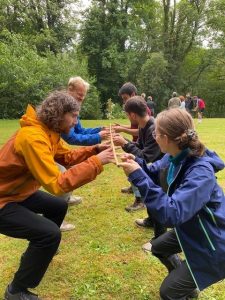
Activities on the day started with some fun team tasks called the ‘Mini Olympics’. Some of the tasks tested logical thinking, the ability to do a task under time pressure, or simply work as a team to complete a certain objective but ultimately to have fun and a laugh.
The tasks were a great opportunity to work together and get to know each other better. Some of them have been more difficult to complete than our students and staff initially expected, but very enjoyable.

After lunch Compass students and staff started a 3-hour Canyoning adventure, guided by the very well trained Call of the Wild team.
The best way of describing this canyoning activity is white water rafting but without the raft. With qualified guides, our students and staff descended a stunning steep sided gorge by various ways and means. This involved sliding down rapids, swimming down rapids, floating down fast flowing chutes and waves, walking behind some breathtaking waterfalls and of course jumping off some jaw dropping waterfalls.
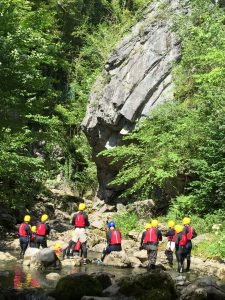
After this thrilling adventure, Compass students and staff travelled to the Vale Resort where they enjoyed dinner together and leisure time until the day after when it was time to come back to Bristol.
It was wonderful to be able to spend time together after the long months of working from home.


